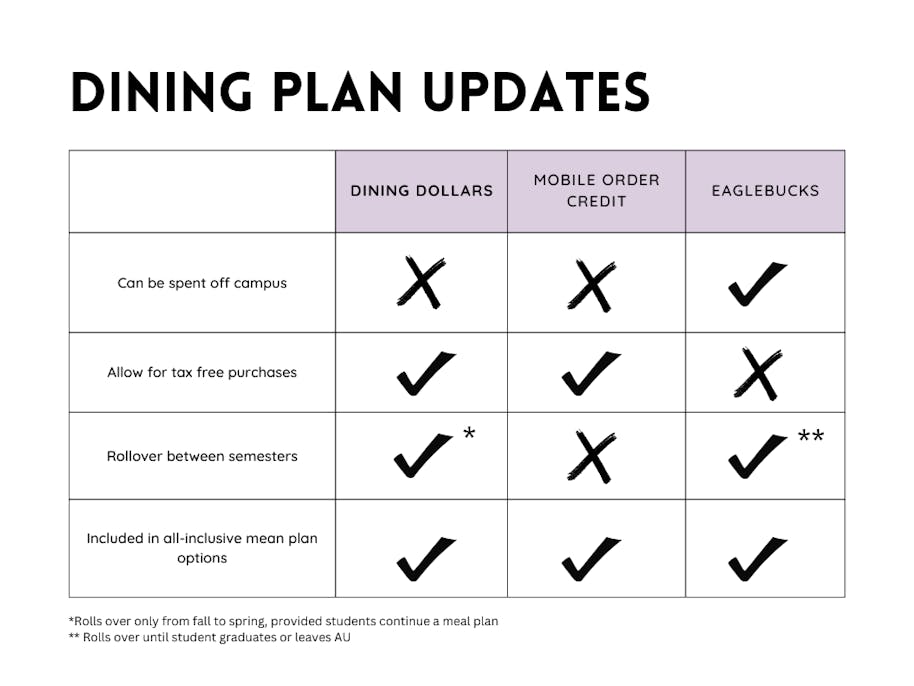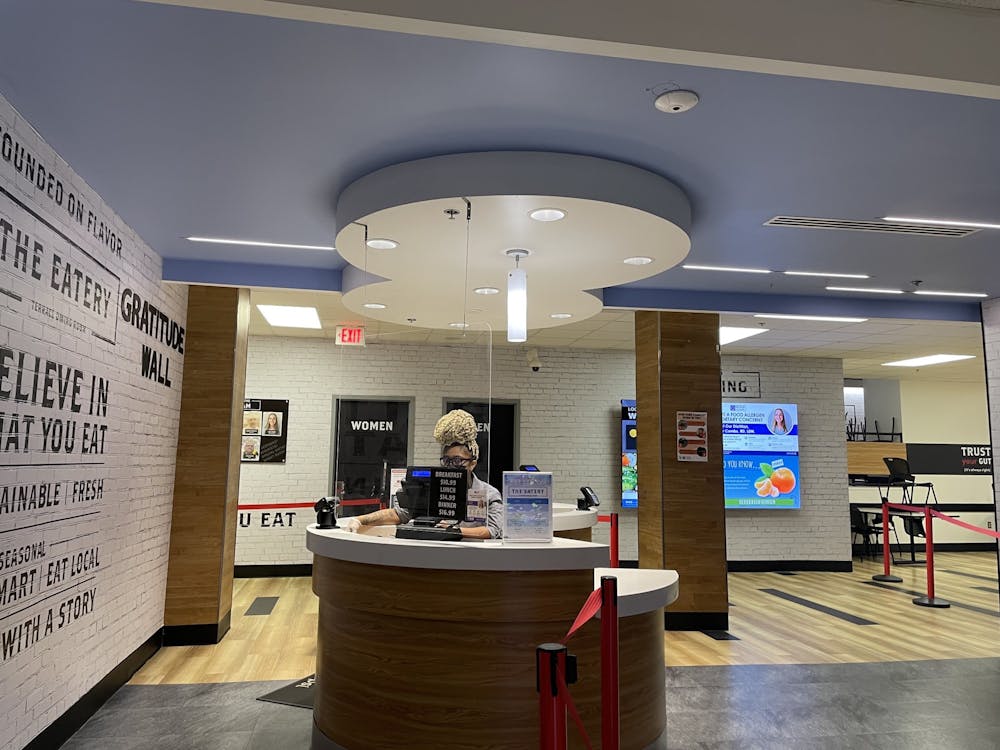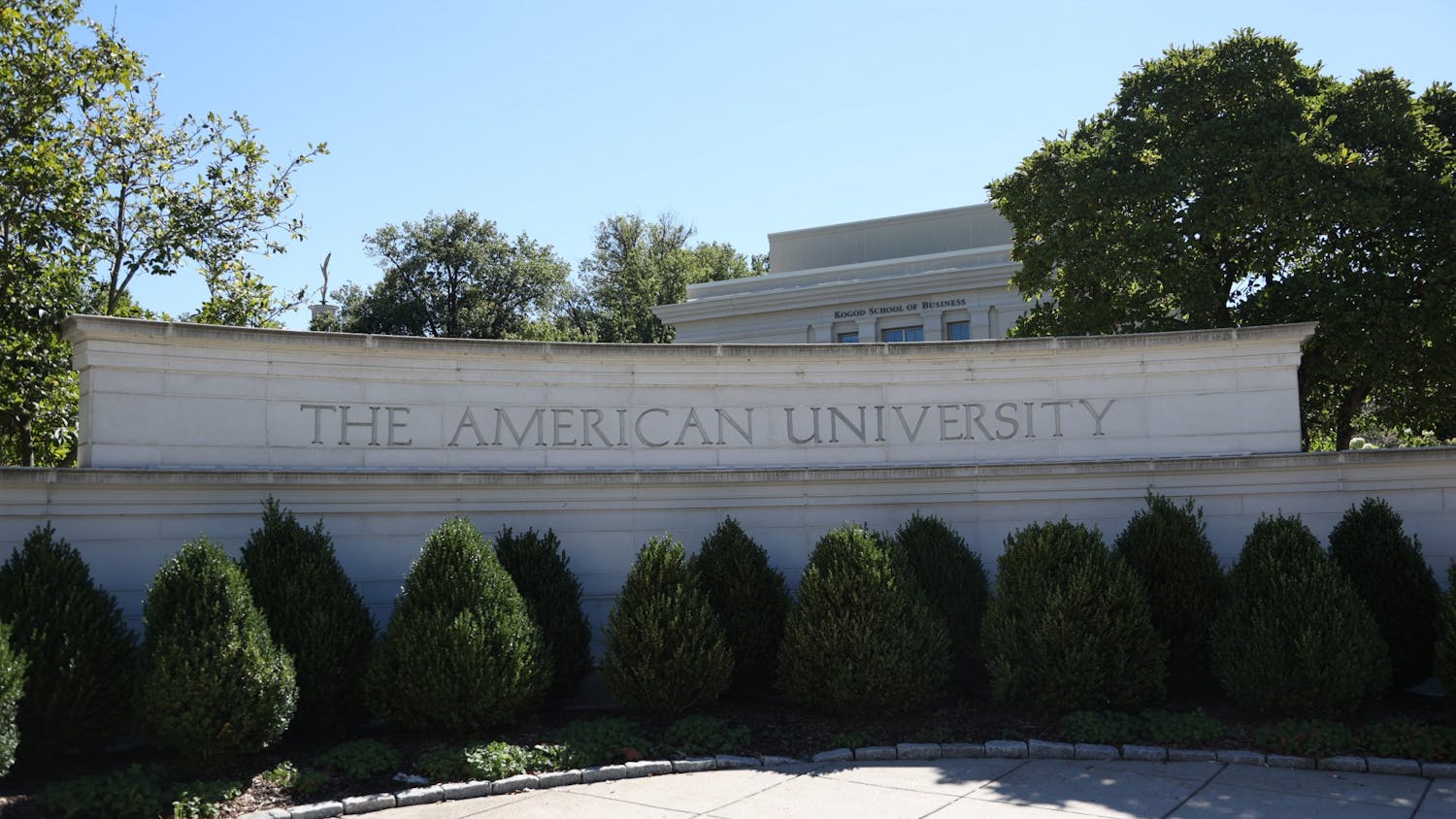For the first time in nearly 20 years, American University’s meal plan options are changing to include new features, including dining dollars and mobile ordering credits.
Beginning in fall 2023, AU will offer meal plans with unlimited access to Terrace Dining Room and limited access to other campus dining locations. Ann Marie Powell, senior director of dining and auxiliary services, said these changes reflect student feedback on the current meal plans.
AU Kitchen met with the Undergraduate Senate, the Residence Hall Association, the Graduate Leadership Council, the Staff Council, the Health Educator Council of Students and the Student Dining Committee to discuss feedback on current meal plans and potential changes, according to Powell. RHA and the Undergraduate Senate hosted a town hall on Feb. 2 where they talked to students about meal plans. AU Kitchen also hosted “Dine With the Director” meetings with students, including student religious-affinity groups, to talk about changes to the meal plans.
The new meal plans and dining options have been in the works since 2019, but renovations to dining locations and new meal plan options were pushed back due to the coronavirus pandemic, according to Powell.
Breaking down the new plans:
While the current dining plans only include meal swipes, meal exchanges and EagleBucks, the new plans include a variety of new components, including dining dollars, mobile ordering credit, guest meals at various dining locations and access to exclusive events.
The new plans offer different options for meal swipes and meal exchanges. The All Inclusive Premium and All Inclusive Plus plans offer unlimited access to TDR, and the All Inclusive Standard and All Inclusive Basic plans offer unlimited access to TDR five and four days each week, respectively. The premium plan limits students to three retail meal exchanges per day, and the other plans limit the number of retail meal exchanges per week. The week resets Sunday morning at 12 a.m., according to Powell.
Unlimited access to TDR comes with a 20 minute minimum “pass-back” time, meaning that a student can only swipe into the dining hall again after 20 minutes have passed from the last time their card was used to swipe in. Students can use their guest meal swipes to bring guests with them to TDR.
The guest meals can also be used as additional retail meal exchanges if a student has already maxed out the number of retail meal exchanges they can use in a week, according to Powell.
The plans introduce Dining Dollars, an addition to the EagleBucks program. Unlike EagleBucks, Dining Dollars can only be used at on-campus locations. Because Dining Dollars can only be spent within the University’s dining services, purchases made with Dining Dollars are tax-free. Powell said that AU added Dining Dollars to give more value to students’ on-campus purchases.
While the new plans no longer include EagleBucks, students can still use EagleBucks at on- and off-campus locations. Students will still be able to deposit money into their EagleBucks account through the OneCard portal or by using the machines in Mary Graydon Center or Bender Library.
The new plans also include mobile ordering dollars that can be used to order food for pickup tax-free from various on-campus locations. Once the mobile ordering credit has been used, students can use their Dining Dollars or EagleBucks for mobile order purchases.

Only Dining Dollars will roll over from the fall to the spring semester, provided the student continues a meal plan in the spring semester. None of the meal plan components will roll over from the spring semester to the next academic year, according to Powell.
The new plan options also include Flex Plans, which offer dining dollars and meal swipes to TDR. The Flex Plans allow students to choose to have more meal swipes than dining dollars or vice versa depending on their needs.
The Eagles Helping Eagles program, which currently allows students to donate up to five unused meal swipes at the end of each semester, will switch to allow students to donate dining dollars instead of meal swipes next semester, according to Powell.
New dining locations
These changes come alongside a number of new dining location options. Over the summer, Subway and Starbucks will be renovated, the Eagle’s Nest will move locations, a new Qdoba will be added in the tunnel and a Panera Bread will replace the Einstein Bros. Bagels and Paper Lantern locations in MGC, according to a March 22 email from Bronté Burleigh-Jones, AU’s chief financial officer.
The University chose new dining options based on data from students, Powell said. AU monitors EagleBucks spending patterns and found that Panera was a popular place for students to spend their EagleBucks. Seeing this, the University decided to add a Panera to campus. AU also spoke with the Undergraduate Senate, which requested a Mexican restaurant on campus. AU decided to bring Qdoba to campus because students are familiar with the brand, making it more accessible, Powell said.
Continuing evaluations and feedback
As the new plans go into effect this fall, Powell said AU Kitchen will be continuing to look for student feedback to evaluate them. She mentioned a variety of ways that AU Kitchen looks for feedback, including surveys, “happy or not” buttons at dining locations, conversations with dining interns, town halls, Student Dining Committee meetings and ServiceNow questions.
Though changes cannot be made midsemester, and likely not between fall and spring semesters, AU will continue evaluating student feedback on the plans, she said.
“I listen all the time. And I think it's important for students to know this is a new meal plan for us, and we really are going to be evaluating next year, so it's good to get feedback,” Powell said. “It's good to know how it's working, what's happening. You know, when we're asking for town halls or asking for feedback, it's really important.”
This article was edited by Abigail Pritchard, Jordan Young and Nina Heller. Copy editing done by Isabelle Kravis, Leta Lattin, Luna Jinks and Stella Guzik.





